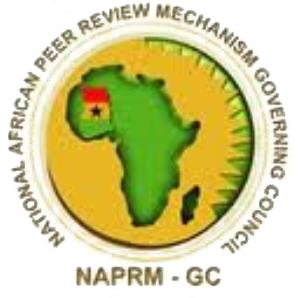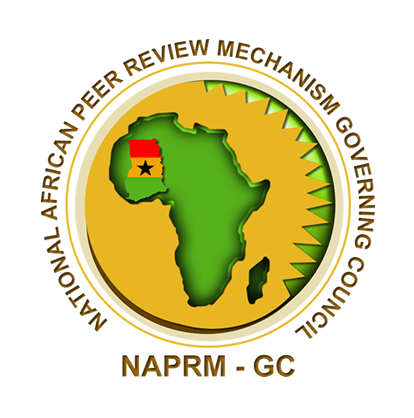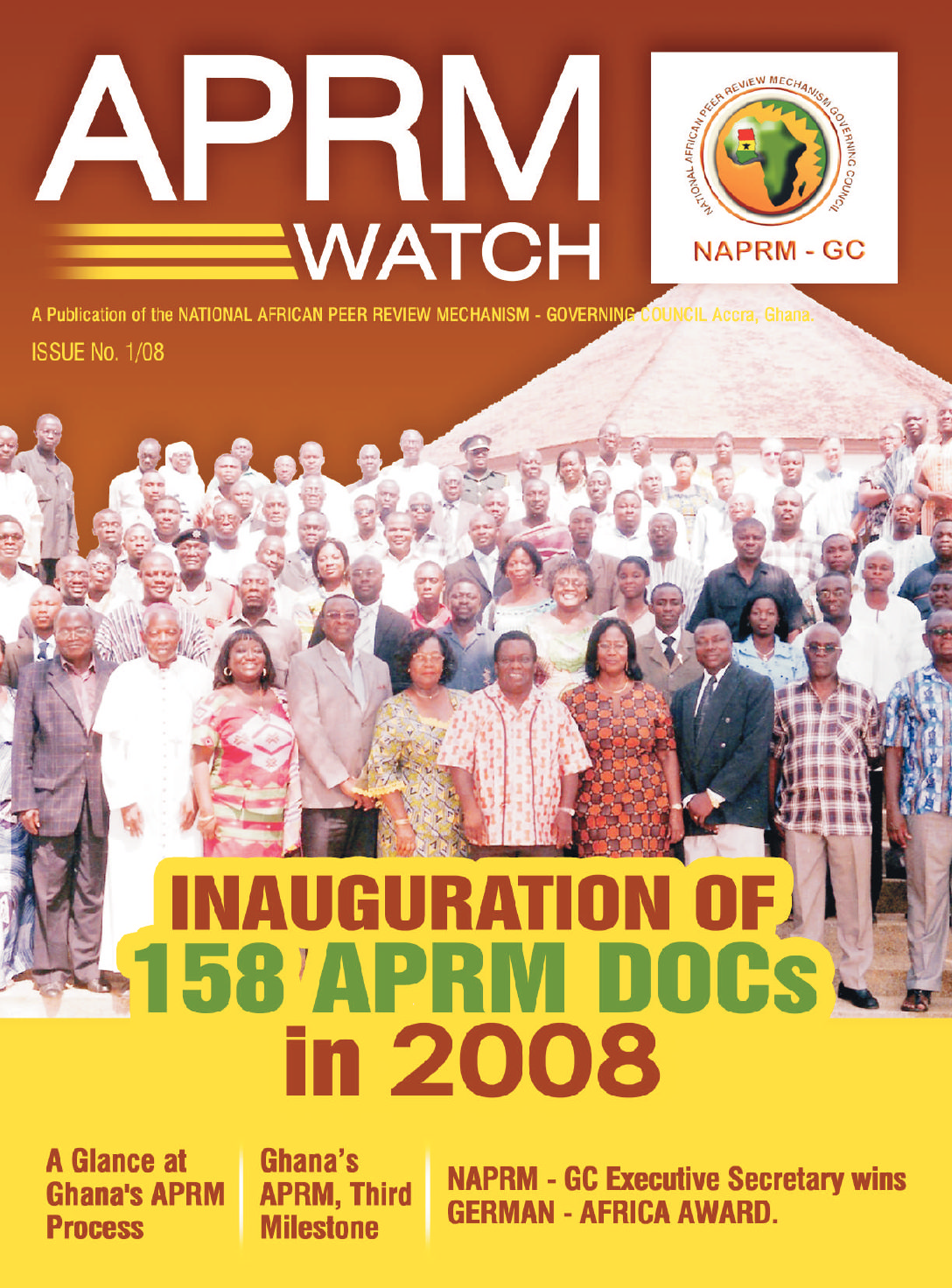Professor SKB Asante Member, National African Peer Review Mechanism Governing Council. Since its adoption in 2002, the African Peer Review Mechanism (APRM) has demonstrated its mettle and real potential of playing a decisive role in ‘collective self-governance, thereby unleashing the continent’s economic and political energies. It has, no doubt, exceeded stakeholders’ expectations while garnering global acclaim. As the APRM marks its seventh birthday in 2009, it is appropriate to take stock of this novel and evolving system to enable us to appreciate the extent to which the APRM process has moved from rhetoric to action. This paper attempts to highlight the APRM implementation process so far.
Present status of APRM process
Although implementation of the APRM process is cumbersome and resource intensive, much progress has been made in moving the process forward, as the Panel of Eminent Persons appointed to exercise the oversight function over the APRM took responsibility for implementing the Mechanism in July 2003. It is highly encouraging that the APRM membership has grown from 10 pioneer countries in 2003 to 28 countries in 2008. Mauritania was the 29 country but has been suspended following the 6 August 2008 military coup that ousted its democratically elected President, Sidi Ould Cheikh Abdallah. Of the 28 acceding member countries, 15 are yet to launch the APRM and subsequently undergo the self-assessment process. The remaining 13 have established their national structures and are in various stages of implementing the APRM process.
The current APRM membership by regional grouping is as follows: 8 in West Africa, 4 in Central Africa, 6 in East Africa, 3 in North Africa and 7 in Southern Africa. These countries represent more than 75 percent of the continent’s population which have voluntarily acceded to this innovative self-monitoring governance initiative which continues to receive worldwide accolade. The 28 countries are in four categories: first, countries that have been peer reviewed and are currently implementing their national programmes of action; second, countries in line to receive review missions; third, countries that are in the process of conducting their self-assessment; and fourth, countries that have acceded but not yet launched the APRM process.
Continentally, the institutions to oversee and implement the process – the APR Forum, seven-member APR Panel and APR Secretariat based in Midrand, South Africa – have been established. At regional level, as highlighted elsewhere in this magazine, Ghana has spearheaded the establishment of a West African Centre for the Advancement of the APRM. Within states the APRM exercise, as Ross Herbert and Steven Gruzd have recently highlighted has ‘generated dialogue about critical national policy matters, assessing among other issues, the roles and relative strengths of the executive, legislature and judiciary’. The APRM has also provoked debate about the conduct of elections and opportunities for public participation in policy making, as well as promotion and protection of human rights, problems with service delivery and progress towards gender equity and social justice.
Success of the 3 pioneer countries.
A critical analysis of the APRM implementation process in the three pioneer countries – Ghana, Kenya and Rwanda has established that peer review is taken seriously and that the teams of experts used to conduct the Country Review Missions ‘have done their work diligently’. The Country Review Reports of the pioneer countries have, by and large, lived up to the APRM’s core principles of being ‘credible, transparent and free of political manipulation’. The process has helped to boost the countries’ international image, reinvigorated national debates about governance and, arguably, will help to attract much needed aid, trade, investment and debt relief. Externally, too, the APRM has generated unprecedented interest and attention from the developed world. The joint presidencies of the Group of 8 (G-S) and European Union in particular Great Britain in 2005 and Germany in 2007, have given the APRM considerable focus.
Encouraging pos t-review process
Significantly, too, the post-review process has been quite impressive, particularly in the case of Ghana, Africa’s trailblazer in the APRM process. To provide the country’s APRM Programme of Action (POA) with a budgetary cover and the promise of implementation, Ghana has pioneered the idea of effectively integrating the National APRM Programme of Action with existing national development processes and plans such as the Growth and Poverty Reduction Strategy (GPRS ), the Millennium Development Goal (MDG) reviews and governance programmes to produce one single development document. The major objective of the POA is to address gaps, deficiencies and weaknesses identified in the National Self-Assessment Report, it is meant to remedy all the problems and challenges highlighted in the Country Self – Assessment Report. The effective integration of Ghana’s APRM POA with existing development plans has been hailed as a unique exercise, particularly as it has provided the necessary resources for the implementation of the POA. There is thus greater coherence between national development strategies and the POA of the APRM,
Role and participation of civil society
The role and participation of civil society in the APRM process, particularly in the first three pioneer countries of Ghana, Rwanda and Kenya, has been vigorous and highly commendable. In the case of Ghana, special efforts have been made to critically involve civil societies, non-governmental organizations (NGOs), local actors and stakeholders in the APRM process at the national, regional and more significantly district levels. Ghana has once again pioneered the idea of inaugurating District Oversight Committees (DOCs) in almost all the 170 Administrative Districts of the country for the purpose of implementation of the APRM process. To this end, the Ghana National APRM Governing Council has prepared for the DOCs a special informative Manual for District Oversight Committees. Members of the DOCs are drawn from identifiable stakeholder groupings at the district level. The DOCs are, among other things, to educate and sensitize community members to better understand and own the APRM process, act as advocate of Ghana’s APRM Governing Council at the district level and assist in monitoring and evaluating the implementation of the APRM Programme of Action. Thus, for the first time in the history of the country – and by extension the whole of Africa local and community actors have been involved in the implementation of governance and development programmes.
Submission of APRM progress reports
The APRM process requires countries that have been peer reviewed to submit both Bi-Annual and Annual Progress Reports on their implementation of the APRM Programme of Action. To comply with this obligation, a series of bi-annual and annual progress reports have been prepared and submitted by countries in this category to the APR Secretariat for onward submission to the APR Panel. To this end, Ghana, the first country to be peer reviewed in January 2006, has successfully submitted 3 Bi-annual and 3
Annual Progress Reports between 2006 and 2008 on the implementation of the POA. Rwanda, the second country to be peer reviewed by the APR Forum in June 2006, submitted its First Bi-Annual Progress Report in December 2006 and First Annual Progress Report in July 2007. On the other hand, Kenya, the third country to be peer reviewed in June 2006, has been able to present one Annual Progress Report only in July 2007.
Conclusion
On the whole, the APRM rhetoric is moving encouragingly into practical action. The process can claim considerable achievements – including three largely credible and robust reports on Ghana, Rwanda and Kenya; vigorous national conversations about policy and priorities; fostering national dialogue, participation and empowerment of citizens in national development; promoting transparency, openness, accountability and democracy; enhancing African ownership of its development process; opening up for identification, evaluation and dissemination of best practices in good governance; providing a base-line to monitor progress being made by a country; fostering common and shared values, standards, norms and traditions; and enabling countries to identify capacity gaps, weaknesses and deficiencies and providing solutions to them.


 newsletter-compressed
newsletter-compressed